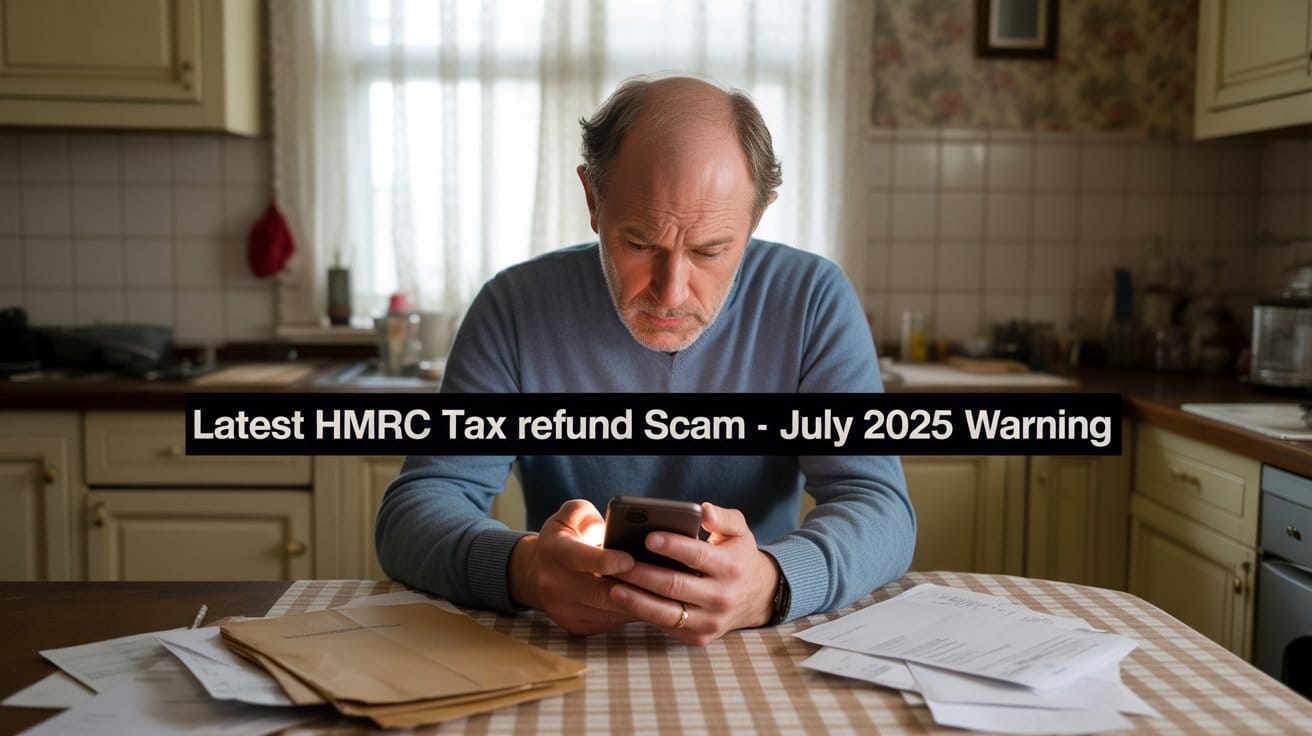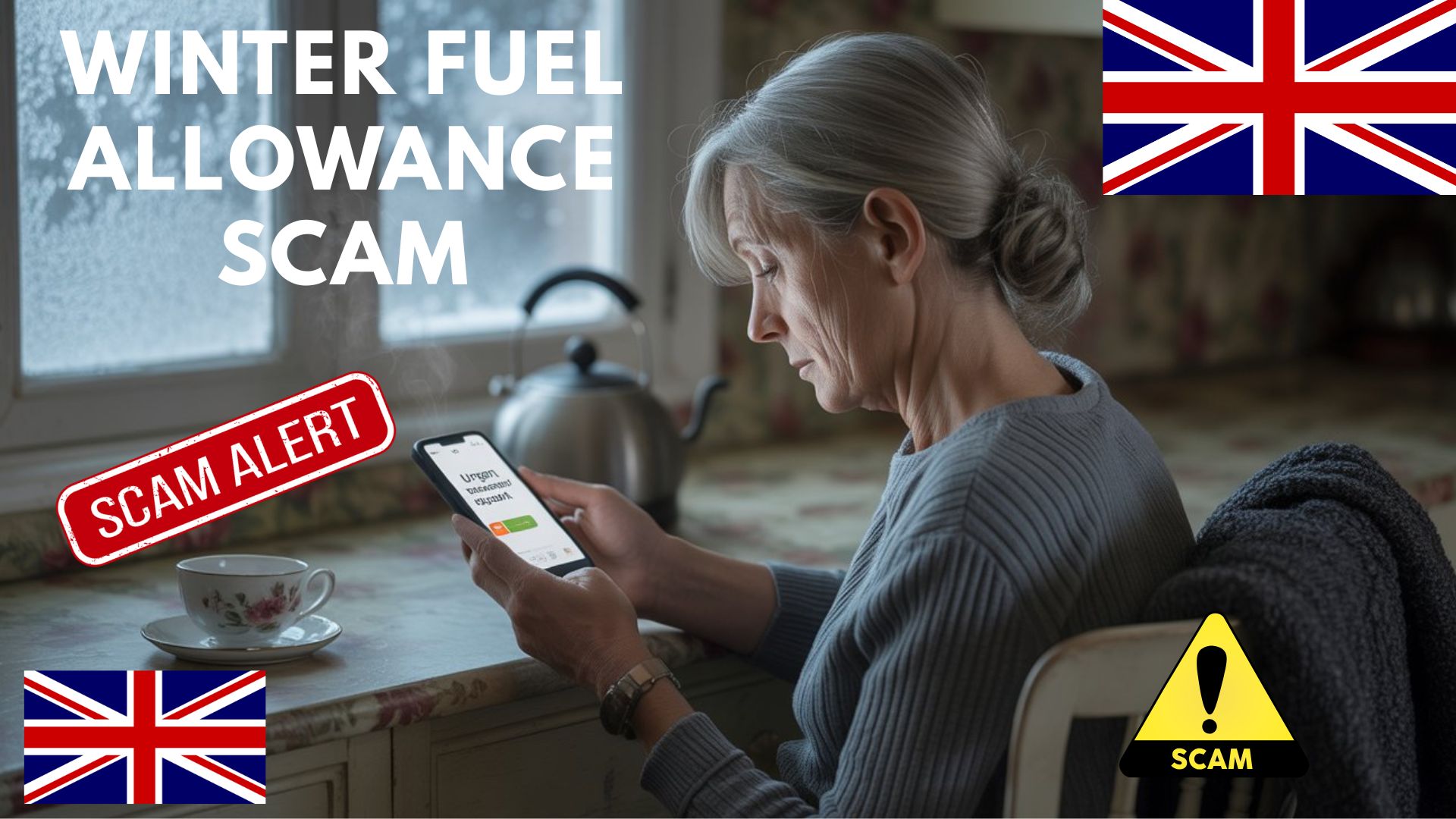A Timely Warning for UK Residents
With the UK still grappling with the ongoing cost-of-living crisis, every bit of financial support from the government is welcome. Energy rebates, tax reliefs, and council support schemes have provided real relief to millions of households struggling with rising bills. But while these schemes help genuine recipients, they’ve also opened the door to a dangerous new wave of fraud—the energy rebate scam.
Criminals are taking advantage of people’s trust in official organisations like Ofgem, HMRC, and local councils. They send convincing messages offering a refund, rebate, or bill discount—only to trick victims into handing over personal and banking details. In some cases, victims have even been persuaded to make direct payments, believing they are securing their rebate.
The sophistication of these scams means even the most vigilant can be caught off guard. This blog will break down what an energy rebate scam is, how it works, the red flags to watch for, and the best ways to protect yourself in 2025.
What Is an Energy Rebate Scam?
An energy rebate scam is a type of fraud where criminals impersonate legitimate government bodies or energy regulators to trick people into revealing sensitive information or sending money. These scams typically claim you are eligible for a government-funded rebate—often referencing recent energy bill support schemes—to make the message sound urgent and credible.
They may contact you by:
- Text message (smishing) – A short, urgent message claiming to be from Ofgem or your council, asking you to click a link to “claim” your rebate.
- Email (phishing) – Professionally designed emails with official logos, urging you to complete a “rebate application form” online.
- Phone call (vishing) – A scammer claiming to be from the council, HMRC, or your energy supplier, offering to process your rebate after you confirm personal details.
How the Energy Rebate Scam Works
The scam follows a similar pattern, regardless of the communication channel:
- Initial Contact – You receive a text, email, or call claiming you’re entitled to an energy rebate (often £150 or £400).
- Urgency & Pressure – The message says you must act quickly or risk losing the rebate.
- Link or Form – You’re directed to click a link, which takes you to a convincing but fake website.
- Data Harvesting – The site asks for personal details (name, address, date of birth) and financial details (bank account, card number, or login credentials).
- Fraud Execution – Scammers use your details to steal money directly or commit identity fraud in your name.
Real-Life Examples of Energy Rebate Scams in 2025
Case 1 – The Ofgem Text Scam
Several UK households have reported receiving texts claiming to be from Ofgem, stating they are due a £400 rebate. The link in the text led to a fake Ofgem website with a cloned design that asked for bank details.
Case 2 – The Council Tax Rebate Call
A woman in Manchester was called by someone claiming to work for her local council, saying she was entitled to a £150 rebate. The caller requested her bank details to process the payment. Within hours, several large withdrawals were made from her account.
Case 3 – Email Impersonating an Energy Supplier
A professionally written email, allegedly from British Gas, informed customers they had a rebate pending. Clicking the link directed victims to a phishing page designed to harvest login details and banking credentials.
Why Energy Rebate Scams Are So Effective
- Timeliness – Scammers launch these attacks during periods when genuine rebates are being issued, making them believable.
- Official Branding – They use real logos and professional templates that look identical to official government and supplier communications.
- Emotional Trigger – With rising bills, people are eager to receive financial relief, making them more likely to respond without verifying.
- Pressure Tactics – Messages often say the rebate offer expires within hours or days, leaving little time for careful thought.
Red Flags to Spot an Energy Rebate Scam
Even the most convincing scam leaves clues. Watch for:
- Unexpected contact – If you haven’t applied for a rebate, a message offering one is suspicious.
- Links to non-official domains – Official sites end with .gov.uk or the verified supplier’s domain.
- Requests for banking login details – Legitimate bodies will never ask for your password or full card number.
- Spelling mistakes or odd grammar – While some scams are polished, small errors often reveal them.
- Urgency or threats – Scammers create panic to push quick decisions.
How to Protect Yourself from Energy Rebate Scams
- Verify Before Acting
- Contact your council or energy supplier directly using their official number or website.
- Ignore Suspicious Links
- Never click on links in unexpected texts or emails—type the address into your browser manually.
- Report the Scam
- Forward suspicious texts to 7726 (free to report to your mobile provider).
- Report phishing emails to report@phishing.gov.uk.
- Use Two-Factor Authentication (2FA)
- Enable 2FA on your bank and email accounts to make it harder for criminals to gain access.
- Educate Family Members
- Elderly relatives are frequent targets—ensure they know about the energy rebate scam and how to avoid it.
What to Do If You’ve Been Targeted
If you think you’ve given details to a scammer:
- Contact your bank immediately – They may be able to stop or reverse the transaction.
- Change your passwords – Especially for your bank, email, and any account that shares the same password.
- Monitor your credit report – Check for unusual activity that could indicate identity theft.
- Report it to Action Fraud – Call 0300 123 2040 or use the online tool at actionfraud.police.uk.
Government and Police Warnings in 2025
The UK’s National Cyber Security Centre (NCSC) and Ofgem have both issued alerts about the rise in energy rebate scams. Ofgem stresses that it never asks for bank details by email, text, or over the phone. Councils have also warned that rebates are applied automatically for eligible residents—there is no need to “claim” them via a link.
Police forces across the UK are urging residents to report suspicious approaches quickly, so they can warn others before more people fall victim.
Why Scams Like This Will Continue to Grow
Cybercrime is evolving rapidly, and the cost-of-living crisis creates the perfect breeding ground for opportunistic fraud. As long as genuine government support schemes exist, scammers will try to mirror them. The only real defence is awareness—knowing what to look for and how to respond.
In the coming years, experts predict these scams will become even harder to detect, especially as AI tools make fake websites, emails, and even voices indistinguishable from real ones.
Final Thoughts: Stay One Step Ahead
The energy rebate scam is not just another phishing attempt—it’s a calculated, highly targeted fraud that preys on people’s financial struggles. By staying informed, verifying any rebate offer, and reporting suspicious messages, you can protect yourself and help stop these criminals from succeeding.
Remember: If it sounds too good to be true—or if it comes with urgency and asks for personal details—it’s almost certainly a scam.
Stay alert, talk about these scams with friends and family, and help spread the word. In today’s digital world, knowledge is your strongest defence.




